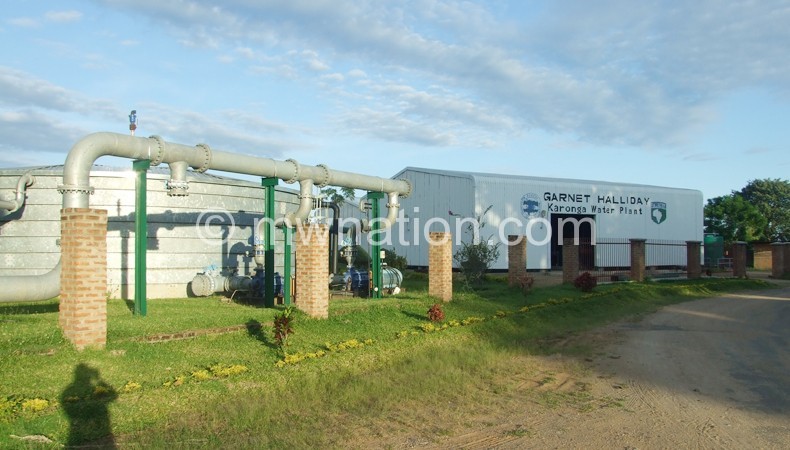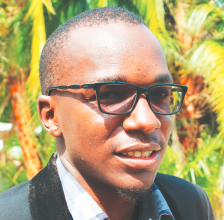Water situation in Karonga, same old story
In the first part of this series, Mzuzu bureau supervisor James Chavula looks at the potable water problems in Karonga and on measures being implemented to change the status quo
To the locals, Karonga has long been a land of disturbing contrasts—so close to Lake Malawi, but the majority of people are still grappling to access water.

Ordinarily, the tale of communities thirsting while in proximity to the continent’s third-largest fresh water body symbolises failure by government and its agencies to come up with long-term, life-saving means of providing for its citizens. With a 2011 survey by Unicef and World Health Organisation (WHO) showing access showing that 17 out of 100 are living in conditions where safe potable water is presently beyond the reach.
In the shoreline district, the problem flashes clear: Sporadic sights of taps, limited to about 5 000 connections at Uliwa, Vinthukutu, Chilumba Jetty and Karonga Boma to be precise. Here, the have-nots, especially rural dwellers, have to endure long walks to drying boreholes which serve nearly 500 people each even though one is designed for 250 users only. The tragedy is that the gushes from boreholes are so salty that they leave some people with browning teeth. Those who cannot stand the scramble for water in the far-flung ‘oases’ resort to streams, shallow wells and other unsanitary sources where animals drink, a predicament which exposes them to water bred diseases.
The problem has been longstanding, but traditional leaders in rural parts of the area say it would have been a thing of the past had the mining company, Paladin Africa, honoured its commitment to ensuring easy access to safe water by communities situated between Songwe Border on the northern ends of the district to Lwezga on its southern boundary with Rumphi.
Not that the agreement was hewn in ink and paper. Nonetheless, the promise Paladin officials made in 2009, when the opening of the uranium mine sparked a call for greater inroads in social responsibility and environmental conservation from both locals and the civil society, remains binding even if the mine was temporarily shut down due to low uranium prices on the global market.
“A promise is a credit,” says Group Village Mchekacheka of Karonga Nyungwe, the midpoint of the slightly over 100 kilometre-stretch earmarked for the Paladin boost. “The problem is big, it has been there before I was born and Paladin told us it would be a thing of the past. Why are we still grappling with long distance to access water that usually discolours our children’s teeth?”
In his reasoning, Malawians deserve safe water regardless of whether they are rural dwellers or urban residents.
“It’s 2014, 50 years after Malawi became independent and people in rural areas need tap water like their counterparts in cities and towns,” says the village head who only tastes piped water when he travels 40 kilometres to Uliwa, Vinthukutu and Chilumba Jetty in Karonga South.
In July, Dedza East parliamentarian Juliana Lunguzi grabbed headlines when she told Parliament that time is over for government to stop borrowing money for boreholes because erecting taps represents a more sustainable and durable way of scaling up access to water.
When villagers in Karonga say the same, they are not exactly towing the line of the youthful parliamentarian who was elected chair of Parliamentary committee for Health after her ground-breaking oration. Rather, they are protesting why Paladin erected a state-of-the-art water pumping system at the heart of Karonga Town, which has had piped water for decades, instead of taking it to unreached areas where it would help ease the unmet demand.
From the veranda of Club Marina, the one-off water plant which remains Paladin’s single most important answer to the seemingly endless needs of the communities in which it operates, can be heard. From the lodge where visitors used to watch crocodiles and hippos play in Lake Malawi, the hisses and puffs of the new water pumps and purification machines can be held across the road.
On its website, the mining firm brags about the plant, saying: “Paladin commitments to providing potable water for Karonga’s projected population growth until 2025 saw the completion of the Garnet Halliday Karonga Water Supply System in 2010.”
Northern Region Water Board (NRWB), who continue to work hand in hand with Paladin in the maintenance of the K10 million water supply plant in Karonga, are happy to have the best water plant the country has never had for the past 50 years.
But locals are convinced it is ill-placed. They liken it to a scratch where it doesn’t itch, a top-bottom approach which offers change agents a good example of what not do when uplifting communities in need.
Lamented group village Chilekeni Gondwe in an interview: “We don’t know how government and Paladin arrived at the decision to plant the machine at Karonga Boma where the majority already had taps in their backyard. All along, we thought it would be planted at a convenient place where some of us, rural residents who drink from shallow wells and streams together with animals, would easily get connected.
“However, it is sad that investors in the mining industry continue to be given the liberty to sideline the interests of locals since the archaic laws require them to deal directly with the central government.”
An investigation into the dealings in the matter reveal the lamentation is just a tip of the iceberg.
Ministry of Water public relations officer James Kumwenda confirmed Paladin social responsibility was initially meant for rural communities first, but asked for a questionnaire when asked how it ended up serving Karonga Boma which was already connected to a piped water system.
Still, insiders have confided in Weekend Nation that even experts at NRWB and the Ministry of Water and Irrigation were against the current site which is exposed to heavy winds on the lake.
In their minds, the experts saw it fit for the machine to be planted at a bay adjacent to Karonga Central legislator Frank Mwenefumbo’s Mikoma Beach Lodge where the impact of the storms is usually suppressed.
Weekend Nation toured the recommended site between Mwenelondo and Mlare. The locals say shifting the water supply plant to town deny them a once-in-a-lifetime opportunity to have tap water within reach.
To be continued next week





